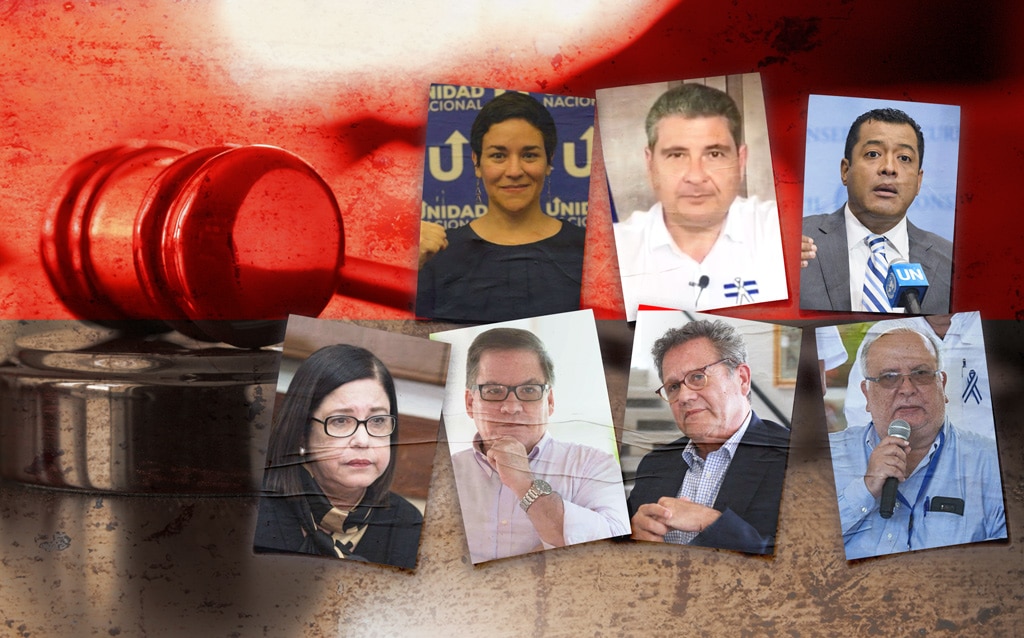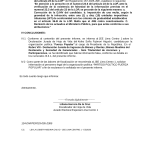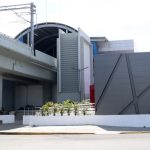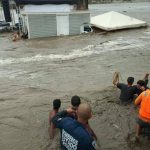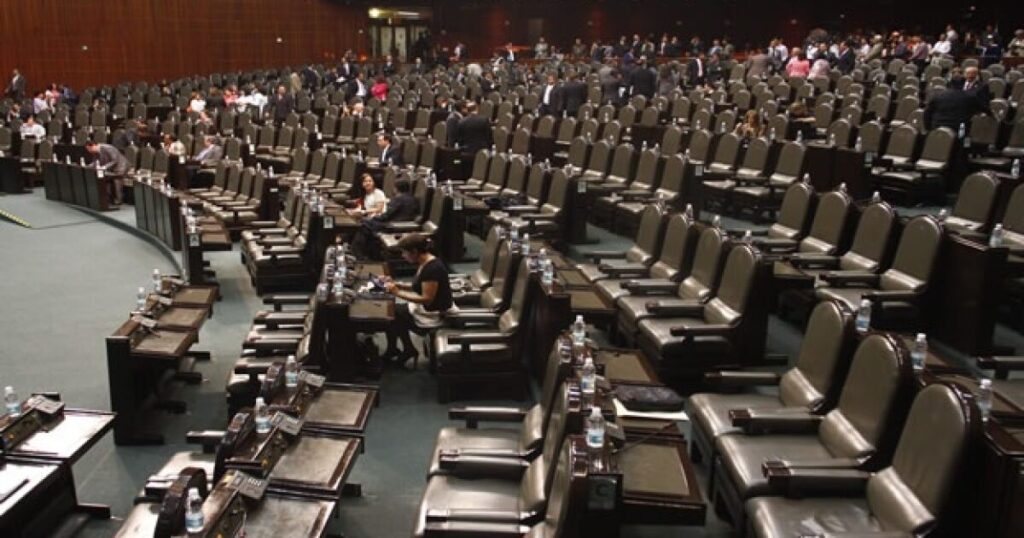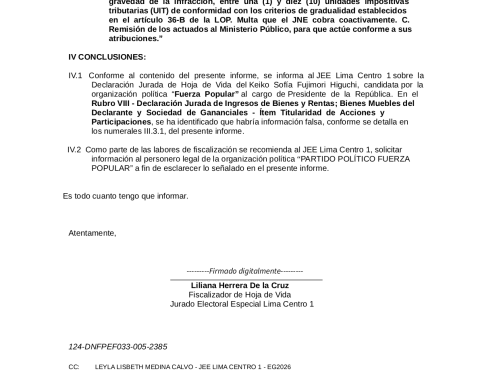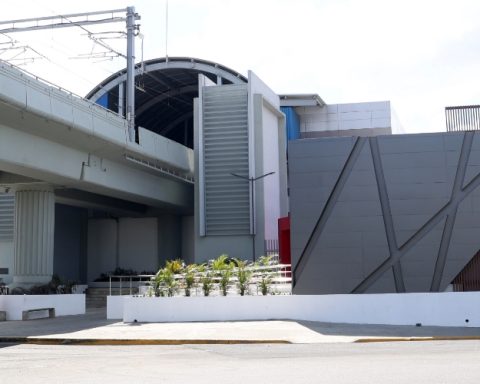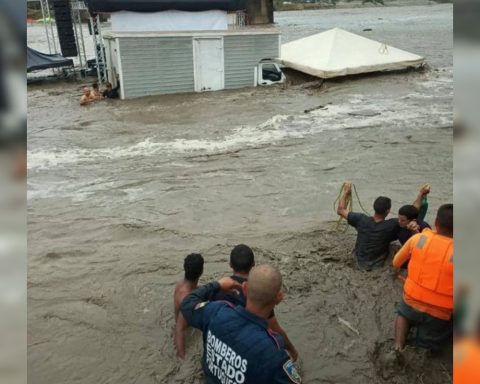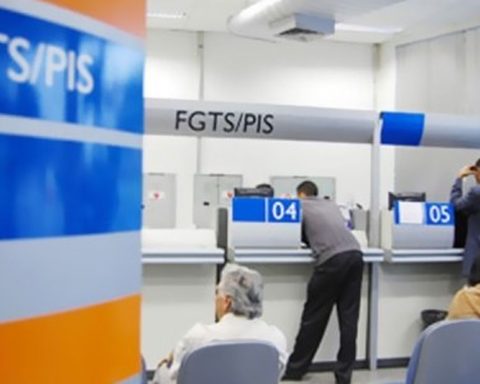The political trial against the seven political prisoners: Félix Maradiaga, Juan Sebastián Chamorro, Tamara Dávila, José Adán Aguerri, Violeta Granera, José Pallais and Arturo Cruz, which began on February 15, will last until this Wednesday, after a first day of more than ten hours, held behind closed doors at the Directorate of Judicial Assistance, known as El Chipote.
CONFIDENTIAL confirmed with relatives of the prisoners of conscience that, by order of the Ortega judge Félix Ernesto Salmerón Moreno, of the Fifth Criminal District Court of Judgment, the process will resume at 8:30 a.m. with the presentation of evidence and testimony offered by the Prosecutor’s Office of the Daniel Ortega regime.
The seven political prisoners, which include three pre-candidates for the presidency, two activists and members of political organizations, a former deputy and a businessman, are accused by the Ortega Prosecutor’s Office of alleged “conspiracy to undermine national integrity”, under Law 1055 or “Sovereignty Law”. The political scientist Manuel Orozco, an investigator for the Inter-American Dialogue, is included in said case, although in his case the accusation is given in “absence”, since he resides in the United States and the Ortega justice system failed to execute the arrest warrant issued in August 2021.
Orozco has rejected any accusation against him and described the cause promoted by Ortega as “totally political”, according to an interview he gave to the Program This week, broadcast on Facebook and YouTube due to television censorship imposed by the Ortega-Murillo dictatorship.
The political scientist argued that the case against him “has no legal or legal basis in his accusation, because a conversation about electoral reform is not binding with a threat against the State.”
They anticipate conviction against opposition leaders
Relatives of the prisoners of conscience prosecuted this Tuesday considered that, as happened with the first 19 trials, carried out in the last two weeks, the ruling of the Ortega judge in charge of the case will be condemnatory, despite the fact that the Prosecutor’s Office has failed to prove any of the crimes they have fabricated.
Berta Valle, wife of presidential candidate Félix Maradiaga, stressed that the trials are a “farce” because many – like her husband – do not even know their defenders because they are not allowed a private audience.
She also denounced that the sentence against her husband “is fixed”, not because he has committed any of the crimes fabricated by the Ortega justice system, but because this has been the practice in recent trials in which prisoners of conscience have been sentenced with evidence. that have been described by lawyers and jurists as “ridiculous” and “without probative value”.
In a report published by CONFIDENTIALlawyers and specialists in Criminal Law described as a “mockery” the trials that have been carried out against political prisoners for the multiple violations of the guarantees and rights of the accused, but also for the “quality” of the evidence “which borders on the parody”.
“The political prisoners have been sentenced with ridiculous evidence that proves nothing, other than the thirst for revenge of the regime towards them. They are evidence that in any real trial would fall in two seconds, what they are doing borders on parody, ”said a defender, who for security reasons was not cited in the analysis released by CONFIDENTIAL.
Boanerges Fornos, former departmental prosecutor of the Public Ministry and director of the Criminal Action agency, also pointed out that the Prosecutor’s Office is using “police officers who say what the regime wants them to say” and presents in trials “setups, infamies” to the that “it can’t even be called evidence” because “it doesn’t fall into that category.”
They fail with eight years in prison against Suyen Barahona
The Ortega justice handed down an eight-year prison sentence on Tuesday, plus disqualification from holding public office, against the political prisoner Suyen Barahona, president of the Democratic Renovating Union (Unamos, formerly MRS), confirmed the Nicaraguan Center for Human Rights ( Cenidh).
In the hearing against Suyen, in which he was convicted of allegedly committing “undermining national integrity” to the detriment of the State of Nicaragua, under the “Sovereignty Law” and the Ortega Prosecutor’s Office requested 15 years in prison and disqualification from exercising public charges, despite the fact that he was unable to prove the fabricated crime against the area of conscience.
Relatives of the president of Unamos have rejected the conviction and demand the annulment of the process and her immediate release, because they consider that everything has been “illegal” and “arbitrary”, starting because Barahona arrived at her hearing -held on February 7 last – still unaware that she would be tried and without having any kind of contact with her defense.
“The only thing that Suyen has done is dare to imagine a Nicaragua, where children like her son and Nicaraguan youth can live in joy and freedom (…)”, reads a statement, issued by her relatives after the impeachment trial.
César Dubois, Barahona’s husband, reiterated, in an interview with the program Tonightthat his partner “has not committed any crime” and that “it is not a crime to express his opinion, it is not a crime to think, it is not a crime to try to find a solution that ultimately helps build a better country, a better society where we can all coexist, without having to be repressed, exiled or imprisoned”.
Trials in El Chipote violate the law
The political trials reactivated by orders of Daniel Ortega have been scheduled for the entire month of February against political prisoners, in the same “El Chipote” facilities, where dozens have been imprisoned since the end of May 2021.
However, carrying out these processes in the prison facilities constitutes one more of the illegalities of due process, according to the specialist in Criminal Law, María Asunción Moreno, in an interview with Tonight.
Lawyers who closely follow the cases against political prisoners agree with Moreno that judges cannot hold hearings outside the Judicial Complex, and that the exceptions established in article 121 of the Criminal Procedure Code only apply to “proceedings” that require the presence of the judge in his territorial jurisdiction.
However, they maintain that the exception does not apply in the case of these political trials, because neither the defense nor the Prosecutor’s Office have requested that they be held in “the new Chipote,” the lawyer said.
The right to defense is violated
Another of the illegalities is that the defenders of political prisoners have not accessed their files – completely or partially – and they have not been able to talk freely with prisoners of conscience.
A lawyer who monitors political trials assured CONFIDENTIAL that in these processes the exercise of technical and material defense is being violated, contrary to article 124 of the Code of Criminal Procedure (CPP), which establishes that “the parties may obtain at their own expense simple copies of the judicial proceedings without any formality” .
Also, he added, article 34 of the Political Constitution of Nicaragua is violated, which in its numeral 4, demands that “their intervention and due defense be guaranteed from the beginning of the process or procedure and to have adequate time and means for their defense ” .
In addition, this January 31, the Public Ministry violated the presumption of innocence of political prisoners, by calling them “criminals and delinquents” in a statement announcing the resumption of trials.
“These same criminals and delinquents have reoffended, attacking the rights of the Nicaraguan people and society, compromising peace and security. They are the same ones that promoted and directed the terrorist acts of the failed coup attempt of 2018, having paralyzed the country and created damage to the economy; They are the same ones that have caused so much pain and mourning in the Nicaraguan family because of the murders, torture and kidnappings,” he published.
Likewise, Ortega already condemned the political prisoners on November 8, in his most virulent speech against political prisoners, in which he called them “sons of bitches of imperialism.”
They demand the release of political prisoners
The Ortega regime keeps more than 170 Nicaraguans imprisoned, and more than 30 of them remain in “the new Chipote”, under isolation, in punishment cells, suffering physical and psychological torture, according to their relatives, who have only managed to visit them on five occasions during the more than six months of confinement.
Relatives of more than 30 political prisoners They demanded, at the end of January, the annulment of the trials and the unconditional release of all prisoners of conscience. In this way, they joined a previous statement, in which another group of relatives appealed for the support of “rulers, living forces of the nation and (Catholic) Church” so that they “lead” a “citizen unification process”, emphasizing that the release of prisoners of conscience would serve “as a kind of liberation shared by all Nicaraguans.”
After the communiqués, the Superior Council of Private Enterprise (Cosep), which had been silent since September 2021, supported the demand for the freedom of prisoners of conscience, and announced its willingness in favor of a national dialogue “without preconditions”, in in the midst of the worst legitimacy crisis of the Ortega regime, which previously announced meetings with different economic sectors, without mentioning COSEP.
Among the 39 political prisoners captured between May 28 and October 21 (including four under house arrest), 29 are accused of alleged conspiracy to undermine; another seven are accused of money laundering and other crimes; two are investigated for violations of the “Law of Sovereignty” and one for abusive management and improper appropriation and retention.
The regime has used against the opposition the package of repressive laws that they approved between October 2020 and February 2021, being the most used until now, Law 1055 or Law for the Defense of the Rights of the People to Independence, Sovereignty and Self-determination for Peace, better known as the “Sovereignty Law”, which facilitated the imprisonment of seven presidential candidates, as well as political, civic, student, peasant, former diplomat, journalist, activist, professional and human rights defender leaders.
He has also used the Special Cybercrime Law, known as the “Gag Law”approved on October 27, 2020, which penalizes whoever -according to the regime’s criteria- spreads “false news”.
Thus, the Prosecutor’s Office sentenced in January Donald Margarito Alvarenga Y Douglas Cerros Lanzas. Alvarenga was convicted of allegedly inciting “hate and violence” through Facebook posts and WhatsApp messages and for “subversion, disobedience and rebellion at the level of conspiracy to affect national integrity”; and Cerros for allegedly undermining national integrity and spreading false news.
With information from EFE
